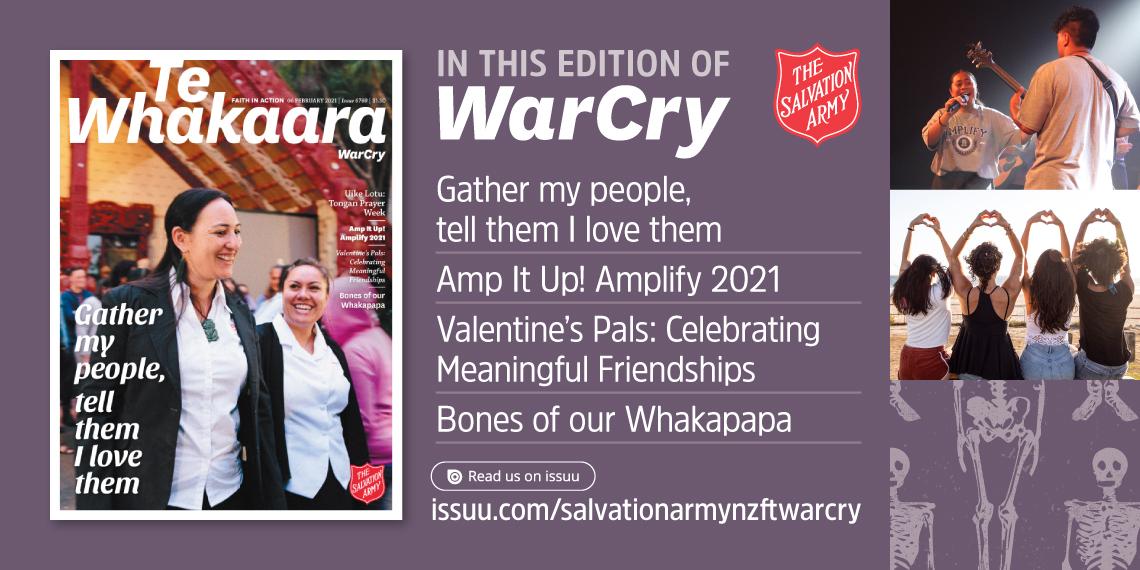The Ecclesiapause

Read this edition online
I collect words like some people collect memorabilia. My latest acquisition is the word ‘anthropause’, a word created by researchers in 2020 as they studied the impact of Covid-19 lockdowns on wildlife. Its literal translation means ‘human pause’.
The study surrounding the 2020 human pause will be in-depth and long-lasting as we grapple with the positives of the planet sitting back and taking a deep breath.
But what of the Church? What impact will the anthropause have on the Body of Christ, the ecclesia? It might well look different in countries who have sustained extended lockdowns, such as the UK, but the impacts on the ecclesia in New Zealand will be significant. Maybe we could call it an ‘ecclesiapause’.
As a territory, we are responding to this ecclesiapause, this interruption to our normal, and examining our mission and ministry. We know that in order to be fruitful and successful in our mission, we must start with prayer; so as we launch into the Year of Prayer 2021 we are not only asking for the wisdom as a territory to move forward together, but also pausing to listen to God. It says in Revelation 2:29, ‘Whoever has ears, let them hear what the Spirit says to the churches’.
Moving forward together involves us all—including Fiji, Tonga and Samoa—and it also means responding to Te Tiriti o Waitangi (The Treaty of Waitangi) partnership. As an organisation and a church, we are aware of the power of forgiveness and reconciliation, and so in this edition of War Cry we look to Waitangi and the possibilities of God bringing healing to our land, in that place, at this time (see our feature on page 6).
Vivienne Hill
Editor
Great things are done by a series of small things brought together.
—Vincent van Gogh
Bible Verse
Revelation 14:6
‘Then I saw another angel flying in midair, and he had the eternal gospel to proclaim to those who live on the earth—to every nation, tribe, language and people.’
Whakakitenga 14:6
‘I kite ano ahau i tetahi atu anahera e rere ana i waenganui o te rangi, kei a ia te rongopai mau tonu hei kauwhau mana ki te hunga e noho ana i te whenua, ki nga iwi katoa, ki nga hapu, ki nga reo, ki nga huihuinga tangata.’
